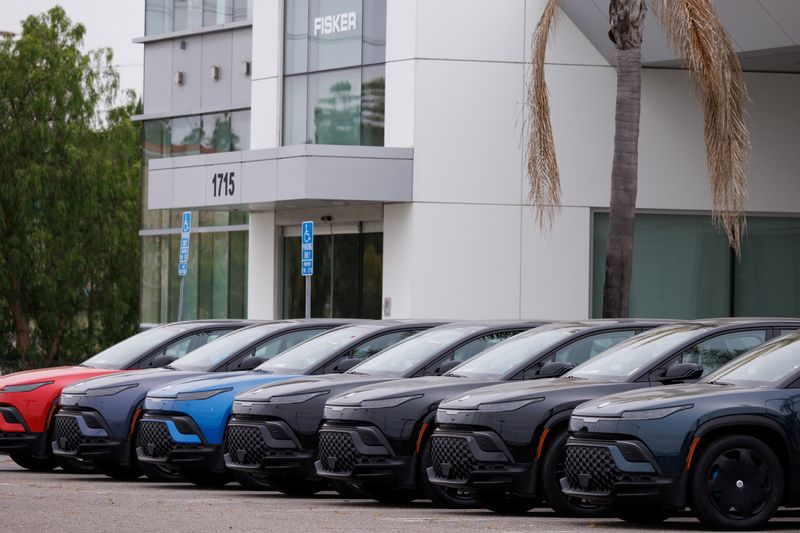(Reuters) – Fisker filed for bankruptcy protection on Monday, the latest electric vehicle startup to struggle with financing difficulties, slow sales and supply chain and distribution challenges.
Demand for Fisker’s ( OTC: ) flagship Ocean electric SUV has been weak. The company is laying off workers and suspending investments to slow its cash burn, working with dealers to boost sales and desperately seeking investment from a major automaker to stay afloat. None of these work.
Other U.S. electric vehicle startups are cutting manufacturing costs, cutting jobs and racing to develop cheaper models to cope with slumping demand due to high borrowing costs.
Rivian Automotive Company
Rivian (NASDAQ: Rivian) shut down its assembly lines for several weeks this year to restructure the plant, a move aimed at cutting costs and helping the maker of the R1S SUV and R1T pickup truck turn a profit.
To spur demand and improve efficiency, Rivian recently launched a second-generation vehicle with new drives, upgraded software and fewer parts.
After refraining from lowering vehicle prices last year, Rivian introduced lower-end models of its existing cars in February.
The startup is working to reduce its cash burn by renegotiating supply contracts and building some components in-house. Rivian’s cash and cash equivalents were $5.98 billion in the first quarter, compared with $7.86 billion in the fourth quarter.
In March, Rivian also launched the smaller, cheaper electric R2 SUV and R3 crossover, and plans to start production of the R2 at its existing U.S. factory to speed up deliveries in the first half of 2026.
Lucid Group
Lucid Group (NASDAQ: ) said in May it would cut 6% of its U.S. workforce. The company’s revenue has missed analysts’ expectations for six consecutive quarters.
It has slashed the price of the Lucid Air Pure and is offering two years of free scheduled maintenance and charging subsidies as a bonus.
Lucid launched the Gravity SUV in November, with a starting price of less than $80,000 and expected to enter production by the end of this year.
To attract a larger customer base, Lucid, with support from Saudi Arabia’s Public Investment Fund, plans to start producing a more affordable mid-size car in late 2026, priced around $50,000.
Lucid ended the first quarter with cash and cash equivalents of $2.17 billion, compared with $1.37 billion in the fourth quarter of last year.
Nikola
Nikola (NASDAQ: ) is turning to hydrogen-powered big rigs after some of its battery-electric trucks caught fire in August and forced a recall.

The company expects truck revenue to reach $170 million in 2024 and aims to sell 450 units this year, including hydrogen fuel cell electric trucks.
Nikola ended the first quarter with $345.6 million in cash and cash equivalents, down from $464.7 million in December.

